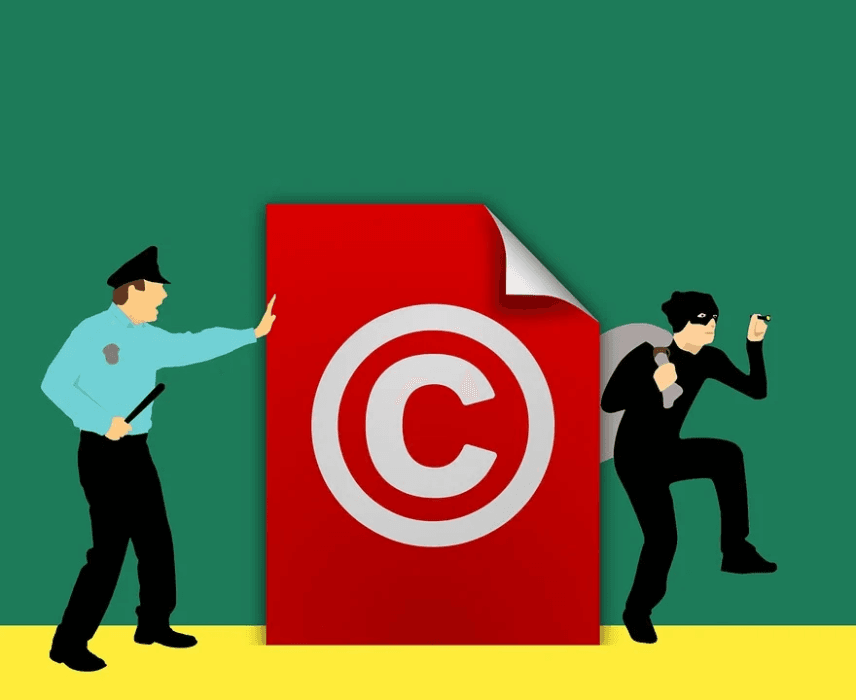Did you know that every time you write something, whether it’s a poem, a song, an article, or even just a grocery list, you automatically own the copyright to that work? Copyright is the legal protection given to creators of original intellectual property. It gives the author exclusive rights over their work, including the right to reproduce, distribute and sell it.
But what does that mean for you as an artist or creator? Knowing and understanding the basics of copyright law is essential for any artist or creator. Here are six tips that will help get you started.
Know that copyright protection is automatic
As soon as you create something original, it is automatically copyrighted. You don’t need to register your work or put a copyright symbol on it for it to be protected. However, there are some benefits to registering your copyright with the US Copyright Office, including the ability to sue for damages if your work is infringed. Copyright protects your creative works, including things like books, music, paintings, and sculptures. It does not protect ideas or facts. So, if you have an idea for a book, you can’t copyright that idea. But once you put that idea into a tangible form, like writing it down or recording it, then you have your legal rights protected and can stop others from using it without your permission. Just make sure to have a reliable legal representative on hand to help you navigate these waters.
Understand the difference between copyright and trademark
Copyright and trademark are two different things. Copyright protects your creative work from being copied without your permission. Trademark protects words, phrases, logos, or other symbols that identify your brand from being used without your permission. For example, Coca-Cola has a trademark on its name and logo. If you tried to sell a drink called “Coca-Cola,” or with a similar logo, they could take legal action against you. You can have both copyright and trademark protection for the same work. For example, the Harry Potter books are copyrighted, and the phrase “Harry Potter” is trademarked.
Be aware of the limitations of copyright protection
Copyright does not last forever. For works created after January 1, 1978, the copyright lasts for the life of the author plus 70 years. After that, the work enters the public domain and can be used by anyone without permission from the copyright holder. There are also some limitations to what can be copyrighted. Ideas, facts, and government works are not protected by copyright. Nor are works that are considered “fair use,” like criticism, commentary, news reporting, or parody. On the other hand, trademarks can last forever, as long as you continue to use them.
Get permission before using someone else’s work
If you want to use someone else’s copyrighted work, you need to get their permission first. This is true even if you are only using a small part of the work, or if you are using it for a non-profit purpose. There are some exceptions to this rule, like fair use or using work for educational purposes, but it’s always best to err on the side of caution and get permission before using someone else’s work. You can find contact information for copyright holders in the work itself or on the internet. The US Copyright Office also has a database of copyright holders that you can search.
Be careful when posting your work online
When you post your work online, you are giving the world a “free pass” to copy it. So, if you don’t want people to copy or distribute your work without your permission, don’t post it online. The exceptions are works that are in the public domain or that you have licensed under a Creative Commons license. If you do post your work online, be sure to watermark it with your name or copyright symbol. This will make it easier to track down infringers and take action against them. And if you do post your work online, be sure to use a copyright notice (like © 2020 John Doe) and a Terms of Use statement that states clearly that people can’t copy or distribute your work without your permission.
Enforce your copyright
If you find that someone has copied or distributed your work without your permission, you can take legal action against them. This is called “enforcement.” You can file a lawsuit against the infringer, or you can send them a “cease and desist” letter that demands they stop using your work. You can also file a Digital Millennium Copyright Act (DMCA) takedown notice with the infringer’s internet service provider (ISP). This will force them to take down the infringing material. You can also report the infringement to the online marketplace where the work was sold, like Amazon or eBay. And if you registered your work with the US Copyright Office, you can file a complaint with their Copyright Infringement Notification System. Enforcement can be costly and time-consuming, so it’s important to think carefully before taking action. You may want to hire a lawyer to help you with the process.

Copyright is a complex topic, but understanding the basics can help you protect your work. Remember that copyright protection lasts for a limited time, and some things are not protected by copyright. You also need to get permission before using someone else’s copyrighted work. By following these tips, you can help ensure that your work is protected.